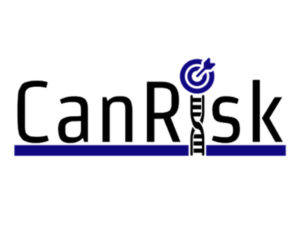Development of risk prediction models for breast, ovarian and prostate cancer
Start Date Jul 2016
Code C9-Aff
Status Ongoing
Risk stratified approaches to cancer prevention, early detection and diagnosis are of increasing interest for primary care. The CanRisk programme is exploring the use of these risk-stratified approaches to predict the likelihood of a person developing a breast, ovarian or prostate cancer, in order to start reducing risk with screening, lifestyle changes and medication.
Funding
Cancer Research UK
Aims & objectives
The main objective is to develop and validate new tools that include discoveries from both cancer genomics and epidemiology.
The CanRisk (cancer risk) assessment tool has been designed to assist clinicians in all clinical settings including primary care and genetics clinics. During a consultation, it can assist with collecting information from patients about themselves, their lifestyle, clinical, hormonal, medication and family history risk factors. This information is used to calculate a cancer risk estimate, which is linked to management recommendations (e.g. screening, preventive medication). The risk prediction is presented using a range of visual recommendations based on current best evidence from risk communication research, and according to NICE management guidelines.
Methodology
Our workstream focuses on engaging with stakeholders through workshops and mixed methods research set among primary care and clinical genetics users. We initially assessed the barriers and facilitators to implementation among each clinical group. We are now aiming to characterise the usability and usefulness of the prototypes in the various clinical settings, ultimately aiming to assess the refined version of the CanRisk tool with patients in primary care and other clinical settings.
Publications
- Lee A, Mavaddat N, Wilcox AN, Cunningham AP, Carver T, Hartley S, Babb de Villiers C, Izquierdo A, Simard J, Schmidt MK, Walter FM, Chatterjee N, Garcia-Closas M, Tischkowitz M, Pharoah P, Easton DF and Antoniou AC. BOADICEA: a comprehensive breast cancer risk prediction model incorporating genetic and nongenetic risk factors. Genetics in Medicine, 2019, doi: 10.1038/s41436-018-0406-9.
- Archer S, Babb de Villiers C, Scheibl F, Carver T, Hartley S, Lee A, Cunningham AP,Easton DF, McIntosh JG, Emery J, TischkowitzM , Antoniou AC, Walter FM. Evaluating clinician acceptability of the prototype CanRisk tool for predicting risk of breast and ovarian cancer: A multi-methods study. PLOS ONE, 2020, doi: 10.1371/journal.pone.0229999



